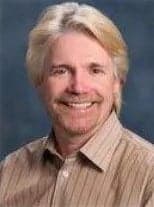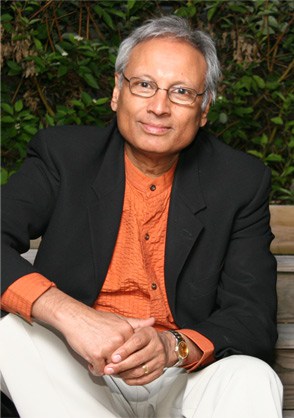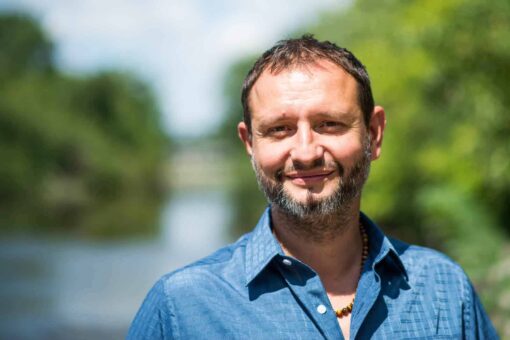Amy Champeau | “Naming” in Tiferet Journal
“We continue to speak, if only in whispers, to something inside us that
Dorianne Laux, “Dark Chants,” Only as the Day is Long.
wants to be named.”
My name is Chaika Runya bat Yitzchak v’ Channa Gittl. This is my ‘Hebrew’ name, my sacred name, my Yiddish name, my hidden name, my underground name, the name that binds me to family lineage and tradition and to my people, going all the way back to the beginning of time. This is the name I am called in Jewish ritual, when I have an aliyah to give a blessing over the Torah or when I am invited to the pulpit to read the Torah, or when I am a witness to someone immersing herself in the sacred baths in order to convert to Judaism.
I am named for two great aunts who were murdered in the Holocaust.
Most mornings of my life, since I was younger than six years old, I’ve woken in terror, heart beating fast, body sweating. In an effort to calm myself I’d listen to music or focus on my breathing before opening my eyes to start the day. Each morning the fear would dissolve as I moved into the day’s activities, only to return the next.
One morning, not long ago I decided to turn toward the fear and terror rather than away, to be curious about it, to explore it, to get to know it. I curled up in the fetal position in bed, tuning in to the sensations I experienced physically. I became aware of a feeling like electric jolts pounding and jumping in my chest and arms. I asked the sensations, “What is the message held in my body?”
What I heard them say was this: “Life is not safe.”
My mother tells me my aunts, Chaika and Runya, the younger sisters of my mother’s father, were shot, killed and buried in a mass grave in then Austria-Hungary during the Holocaust. In my mind’s eye, here is how I imagine them: They are two young women, maybe in their 20s; their light brown hair hangs in braids down their backs, each wears a dark wool dress, a cream-colored pinafore, woolen knee-high socks and sturdy shoes. They stand with their family and friends and fellow-townspeople, all of whom have been herded out of their homes, their beds, and lined up at the town’s edge, in rows, ahead of them the deep pit into which their lifeless bodies will be tossed, one on top of another, like sacks of potatoes, to be covered with dirt, and erased.
I imagine dogs barking wildly and the loud yelling of male voices in a language my aunts and their friends and family don’t understand. They do understand what will happen to them. I imagine the rifle shots as faceless men mechanically shoot them from behind, one by one, and I imagine the unbearable, unimaginable terror of waiting as your turn comes, hearing the screams, hearing the heavy plop as each body falls into the pit, witnessing your loved ones’ deaths, knowing your inescapable fate, waiting to feel pain, feeling the bullet entering your chest from the back, breathing your last breath, collapsing and tumbling, finally, into the pit. In their names, their stories, their lives, their deaths take residence within the confines of my body, mind and soul, carried within me like a blessing, or like a parasite.
(more…)








